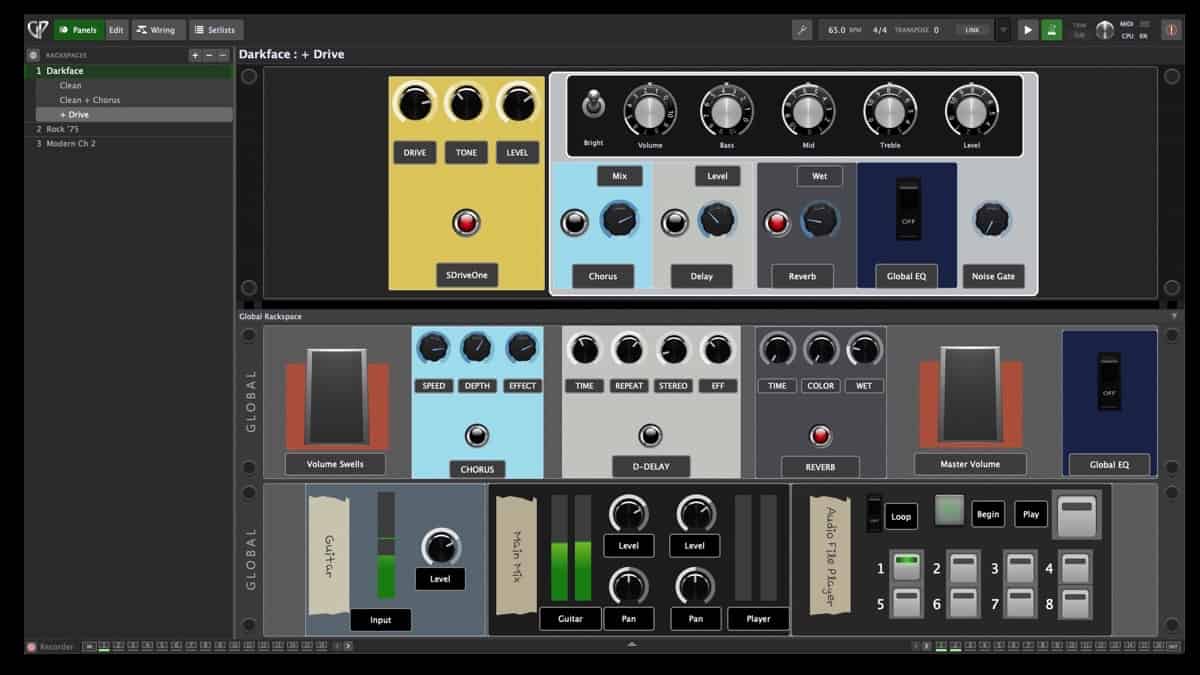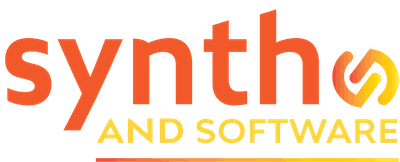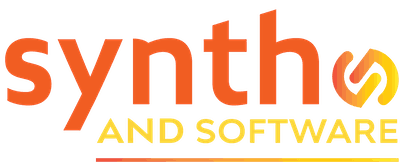In This Issue
Deskew Gig Performer 4.0 Brings 49 Billion Enhancements

The list of new features in the latest version of the dedicated live performance plug-in host is dizzying
If you already have a DAW, do you need a dedicated plug-in host for live performance? We answered that question loudly in the affirmative when we reviewed Deskew’s Gig Performer 3.8 last year (read review here).
Please read or re-read the review (link just above) for an explanation of this very clever Mac and PC program, which now also comes in a native M1 version for the new Macs).
Version 4 is a formidable upgrade that adds a dizzying number of new features. Here are some of the highlights:
– Gig Performer 4.0 comes with a bundle of synths, guitar amps, and effects from third-party plug-in developers, along with related templates, to get you started.
– The Global Rackspace, for sharing plug-ins among individual Rackspaces. If you use, say, the same softsynths and a reverb on all the songs in your set that’s shared by the guitarist, you only have to load it once. Global Rackspaces can also house loopers, media players, and other plug-ins that keep running across song and set changes.
– An expanded virtual wiring view in all Rackspaces is now zoomable and scrollable, so you can move quickly between details of specific connections and an overview of the entire layout. Collections of wired-together plugins can be saved as named favorites.
– The new Curve Designer tool creates, scales, and customizes curves that can affect Widgets (which are onscreen controls that respond to MIDI), note velocities and other MIDI data, etc. Then the Probabilistic Sound Designer applies randomization to user-selected parameters of any plug-ins. You have extensive control over what does and doesn’t get randomized.
– A native MIDI File Player plug-in holds up to 128 songs, and can map individual tracks to different instrument plug-ins. Song tempo can drive Gig Performer’s global tempo to synchronize time-based effects such as delays; in the other direction, tap tempo can control the file playback speed. MIDI messages in a song file can trigger Rackspace and other vital control changes, for performers who use MIDI backing tracks. Files may also be looped and start at user-defined bars.

– Other MIDI enhancements include an expanded MIDI In Block with velocity curves, real-time note name and velocity display, keyboard tracking for plug-in parameters, and note inversion (for admirers of Joe Zawinul). The MIDI Helper provides an intuitive visual way to create individual MIDI events. MIDI events such as control movements or program changes can have different effects on different software (and hardware) devices, and it can handle manufacturers’ SysEx information.
– Touchscreen laptops are supported, with an optional large touchpad for entering error-free values quickly, drag-to-change support, and tap tempo entry.
– An Undo feature for panel design, making it easier to design complex panels and layout widgets.
– Scriplets are the offspring of GP Script, the programming language included with Gig Performer. They’re for creating custom functions within Gig Performer, which can then be shared with the Gig Performer community. Gig Performer’s programming language adds features to the program, for example there’s a script that plays the bass note that it figures out from the other notes in a chord.
Workflow improvements include:
– Separate control of audio input muting and output fading when changing Rackspaces.
– Dragging a preset into the wiring view automatically loads the appropriate plug-in.
– Default Widget values, accessed by double-clicking.
– Custom backgrounds for panels and label Widgets.
– Faster assignment of multiple Widgets to groups.
– Audio mixer plug-ins now support up to 32 channels.
– The System Actions plug-in for more control of Gig Performer from external controllers.
– New tuner view with changeable A reference frequency.
– Maximum number of connections definable for individual Blocks.
– More integration with hardware synths and other outboard MIDI devices, along with improved SysEx support.
– Over 100 new GP Script System Functions.
– An external C-based API allows hardware manufacturers to integrate their control surfaces into Gig Performer.
Prices: $169.00 (macOS or Windows), $199.00 for a cross-platform bundle beginning June 1. Customers who purchase Gig Performer 3 (current version) for $149 through May 31 will immediately receive licenses for both Gig Performer 3 and Gig Performer 4. Upgrade discounts from older versions are also available.
Visit online for more information at gigperformer.com
















